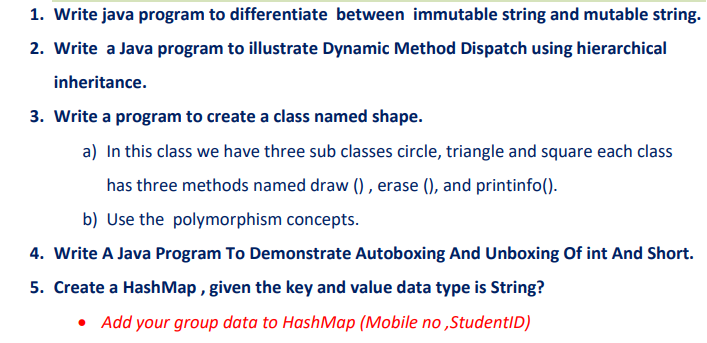Why Are Strings Immutable in Java? Key Reasons and Benefits Discussed
Wiki Article
Unalterable Strings: A Key Element in Ensuring Information Uniformity and Dependability
In the realm of data monitoring, the importance of unalterable strings can not be overemphasized. These changeless series of characters play a pivotal function in upholding the integrity and precision of information within systems. By maintaining a state of immutability, data uniformity is made certain, cultivating a structure of reliability whereupon vital procedures count. The idea of immutable strings transcends mere formality; it is a cornerstone in the facility internet of information governance. As we discover the advantages, execution strategies, and sensible applications of immutable strings, a more clear picture arises of their vital nature in safeguarding the electronic landscape.The Principle of Immutable Strings
Unalterable strings, a fundamental principle in programming, refer to strings that can not be customized when they are created. Basically, as soon as a string worth is designated, any procedure that shows up to modify the string in fact produces a new string. This immutability guarantees information consistency and reliability in applications, as it protects against unforeseen changes to the initial information.
Advantages in Data Consistency

Data consistency is vital in different aspects of software advancement, consisting of database monitoring, multi-threaded settings, and dispersed systems (Why are strings immutable in Java?). Unalterable strings add considerably to attaining this uniformity by avoiding information corruption due to simultaneous access. In situations where numerous processes or strings communicate with the exact same data at the same time, unalterable strings act as a guard against race problems and synchronization issues
Additionally, the immutability of strings simplifies debugging and testing processes. With unalterable strings, developers can rely on that as soon as a string is established, it will remain unchanged, making it less complicated to trace the source of mistakes and making sure that test situations generate consistent results. This integrity in information managing eventually causes a lot more robust and secure applications.

Executing Unalterable Strings
Ensuring the immutability of strings needs a thoughtful method to their execution in software program growth. When a string things is developed, one key approach is to develop string classes in a way that protects against alterations. By making strings unalterable, designers can improve data uniformity and integrity in their applications.To apply unalterable strings successfully, developers must prefer creating new string items instead of changing existing ones. This practice makes sure that when a string is designated a worth, it can not be altered. Additionally, any operation that shows up to customize the string ought to develop a new string with the preferred modifications rather of modifying the original.
Furthermore, using immutable strings can streamline concurrency management in multi-threaded atmospheres. Given that immutable strings can not be changed after creation, they can be safely shared amongst multiple strings without the risk of data corruption.
Duty in Integrity Guarantee
In software program development, the use of immutable strings plays a vital function in making sure the dependability of information operations. Unalterable strings, as soon as created, can not be customized, guaranteeing that the data they stand for continues to be constant throughout the application's implementation. This immutability residential property gives a level of guarantee that the information being processed will certainly not be unintentionally changed, resulting in unanticipated results or errors in the system.By integrating immutable strings into software application design, designers can enhance the integrity of their applications by reducing the threats connected with mutable data - Why are strings immutable in Java?. Unalterable strings help in avoiding data corruption or unintended adjustments, which can be specifically essential when managing delicate information or when data integrity is paramount
In addition, the use of immutable strings simplifies concurrent processing, as numerous threads can securely access and share string data without the risk of one string changing the web content while one more reads it. This facet adds considerably to the total reliability of the software program system, making certain consistent and click to read more foreseeable actions in data dealing with operations.
Applications and System Assimilation
The smooth combination of immutable strings into different applications and systems is pivotal for ensuring my sources robust data uniformity and reliability throughout diverse technical atmospheres - Why are strings immutable in Java?. Immutable strings play an important role in enhancing the stability of information exchanges and interactions within complex software application environments. By including unalterable strings into applications, designers can minimize the dangers associated with information tampering, unapproved adjustments, and unintended changes, thereby strengthening the general security stance of the systemIn the context of system combination, immutable strings act as a foundational aspect for establishing safe and secure communication networks and helping with smooth data transfers in between various parts. Their unalterable nature makes certain that data transmitted in between systems remains unchanged and proven, minimizing the chance of variances or errors that could jeopardize the honesty of the whole system. Additionally, unalterable strings can boost interoperability in between inconsonant systems by giving a standardized format for information representation, making it possible for more efficient information handling and exchange methods throughout interconnected systems. By embracing immutable strings in applications and system combination processes, organizations can strengthen their information facilities and support the dependability and consistency of their info assets.
Verdict
Finally, immutable strings play an essential function in maintaining information consistency and reliability in various applications and system integrations. By guaranteeing that strings can not be altered when produced, the integrity of information is preserved, lowering the danger of errors and inconsistencies. Carrying out unalterable strings can considerably boost the integrity of systems, ultimately bring about more precise and trustworthy data processing.
Report this wiki page